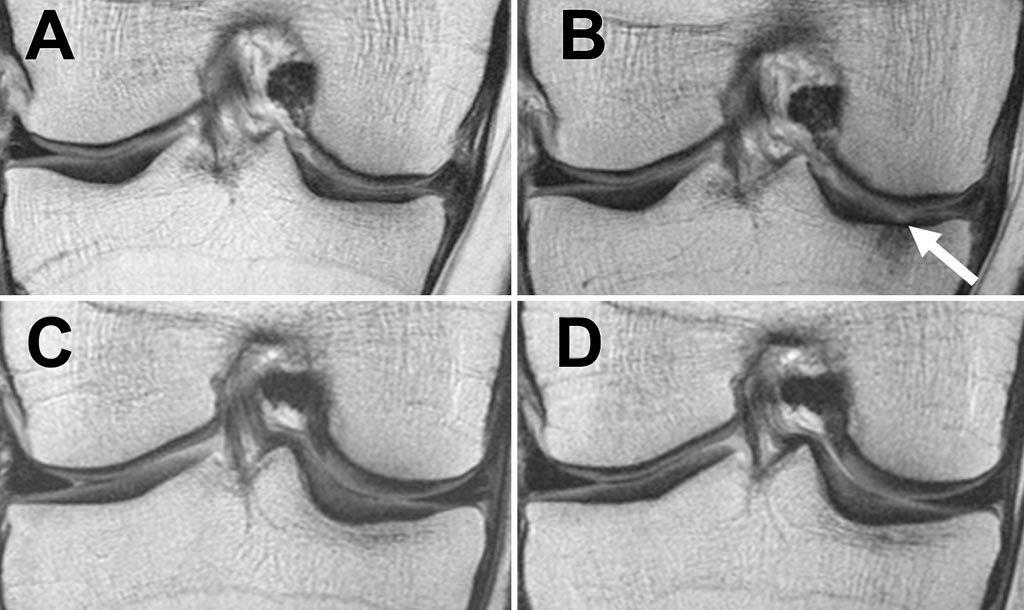Weight Loss Slows Progression of Joint Degeneration
By MedImaging International staff writers
Posted on 03 May 2017
The results of a new study indicate that weight loss in overweight and obese patients can slow down the degeneration of cartilage in the knee.Posted on 03 May 2017
The goal of the research was to investigate the relationship between the progression of changes in the knees of patients, and their weight. Extra body weight causes joints and cartilage to wear away faster, and can also cause changes in the menisci. Being overweight or obese also increase the risk for osteoarthritis.

Image: MRI scans of the right knee of a patient using the coronal proton density–weighted fast spin-echo fat-suppression sequence (Photo courtesy of RSNA).
The research team from the University of California San Francisco published the results of their study online in the May 2, 2017, issue of the journal Radiology.
The results of the study showed that a 5% weight loss in patients, during the study period, resulted in lower rates of cartilage degeneration compared with other participants with a stable weight. The decrease in the speed of cartilage degeneration was even more pronounced in those patients who lost 10% of their weight. Light or moderate exercise can also help prevent cartilage degeneration in the knee.
Lead author of the study, Alexandra Gersing, MD, Department of Radiology and Biomedical Imaging, UCSF, said, “For this research, we analyzed the differences between groups with and without weight loss. We looked at the degeneration of all knee joint structures, such as menisci, articular cartilage and bone marrow. The most exciting finding of our research was that not only did we see slower degeneration in the articular cartilage, we saw that the menisci degenerated a lot slower in overweight and obese individuals who lost more than 5 percent of their body weight, and that the effects were strongest in overweight individuals and in individuals with substantial weight loss. Our study emphasizes the importance of individualized therapy strategies and lifestyle interventions in order to prevent structural knee joint degeneration as early as possible in obese and overweight patients at risk for osteoarthritis or with symptomatic osteoarthritis.”














